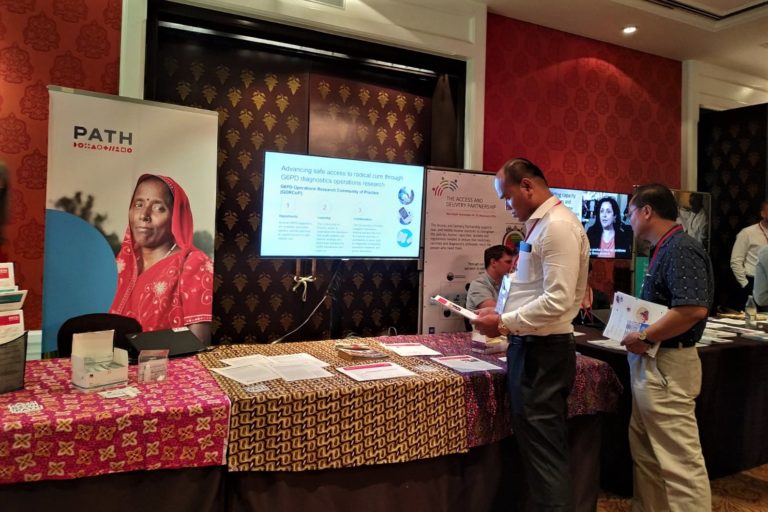During Malaria Week 2019 in Bangkok (22-25th April), APLMA hosted a 2-day exhibition for Product Development Partnerships (PDPs) to showcase the pipeline of game-changing innovations to test and treat malaria. Representatives from FIND, PATH, Medicines for Malaria Venture (MMV), and the United National Development Program Access and Delivery Partnership (ADP), who strive to improve access to diagnostics for malaria, were a part of the exhibition.
The exhibition was useful in providing full visibility of the latest tools required for malaria elimination for Senior Officials from Ministries of Health, Foreign Affairs, Finance and Defence, as well as representatives from malaria programs. In addition, the event was a good platform for information sharing on the timelines for introducing and rolling out these tools in the region.
The pathway to elimination in the region is fraught with challenges. From drug-resistance to the increasing burden of recurring P.vivax malaria. The Greater Mekong Subregion (GMS) for example reports an increase in the relative burden of P. vivax to 60% in 2018. For this reason, having the right tools to test and treat malaria down to the last mile, is of utmost importance, if the region is to stand strong on its goal of achieving elimination by 2030.
Rapid Diagnostic Tests (RDT) and microscopy are the primary methods for diagnosing malaria in the region but few of the available RDTs can detect P.vivax infections and the parasites lying inactive in the liver cannot be detected by any diagnostic test yet. The GMS also reports large number of cases of asymptomatic malaria, which is difficult to detect using standard RDTs. This underpins a growing need for tools using cutting edge technology, that can address these issues.
Access to these advanced diagnostics would also mean that they are made available in the countries in a timely manner. Regulatory authorities have an important role to play in ensuring that regulatory processes run smoothly, and leaders can facilitate this process through the development of clear Roadmaps for the introduction of these tools.
Going forward, APLMA will continue to work closely with PDPs on facilitating conversations with countries and relay demands of regulators and programs for antimalarial commodities to PDPs and access partners. APLMA will also support the development of policy roadmaps for the introduction and adoption of these life-saving innovations so that they can truly benefit the communities at risk.

